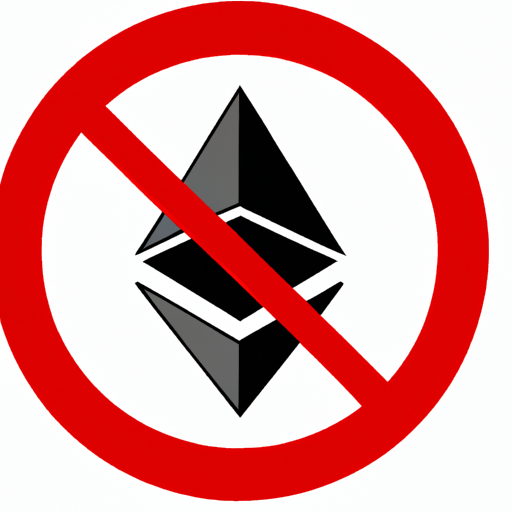Ethereum Blockchain Operators Comply with Sanctions, Igniting Decentralization Concerns
In recent developments within the Ethereum blockchain community, an increasing number of operators have chosen to adhere to the sanctions imposed by the Office of Foreign Assets Control (OFAC). While this move may seem like a step towards regulatory compliance, it has sparked a wave of concerns among proponents of decentralization and individuals actively participating in the network.
The Background: OFAC Sanctions and Ethereum Blockchain
The Office of Foreign Assets Control (OFAC) is a division of the U.S. Department of the Treasury that administers and enforces economic sanctions against foreign individuals and entities. These sanctions are designed to address various national security and foreign policy concerns and regulate financial transfers.
Ethereum is a decentralized blockchain platform that supports smart contracts and enables the creation and deployment of decentralized applications (DApps). It operates through a network of nodes, with each node operator playing a crucial role in maintaining the integrity and consensus of the network.
Compliance with Sanctions: The Dilemma
In response to the OFAC sanctions, Ethereum blockchain operators have found themselves torn between two conflicting principles: complying with the regulatory requirements or upholding the principles of decentralization.
Complying with the OFAC sanctions allows operators to avoid potential legal consequences and ensure they are following the established regulations. However, this compliance comes at the cost of compromising the core tenets of decentralization that the Ethereum blockchain was built upon.
Decentralization refers to the distribution of authority and control among multiple participants, ensuring that no single entity can exert undue influence or control over the entire network. By complying with sanctions, Ethereum blockchain operators risk centralizing power within the network, potentially leading to censorship and limitations on transactions.
The Concerns: Censorship and Limitations
One of the major concerns arising from the compliance with OFAC sanctions is the potential for censorship on the Ethereum blockchain. With operators enforcing sanctions, there is a possibility of blocking or restricting certain transactions that involve sanctioned individuals or entities.
This censorship raises concerns about the true nature of decentralization within the Ethereum blockchain. It questions whether the network is truly decentralized if a central authority can dictate and control which transactions are allowed to occur.
Furthermore, the compliance with sanctions might lead to limitations on the accessibility and inclusivity of the Ethereum network. Users who reside in regions affected by OFAC sanctions may find themselves unable to participate fully in the Ethereum ecosystem, hindering innovation and adoption.
Final Thoughts: Balancing Compliance and Decentralization
The increasing compliance with OFAC sanctions by Ethereum blockchain operators has undoubtedly stirred concerns among decentralization proponents and network participants. While regulatory compliance is essential for the growth and acceptance of blockchain technology, it should not come at the expense of sacrificing the fundamental principles that underpin the decentralized nature of Ethereum.
Striking a balance between compliance and decentralization is an ongoing challenge faced by blockchain communities. Finding innovative solutions that preserve the core principles of decentralization while addressing regulatory requirements is crucial for the long-term success and adoption of blockchain technology.
In conclusion, navigating the complexities between regulatory compliance and decentralization is a delicate task for Ethereum blockchain operators. The challenge lies in upholding the principles of decentralization while maintaining a responsible approach to compliance. It is crucial for the Ethereum community to engage in collaborative discussions and explore alternative solutions that preserve both their values and regulatory obligations.
Hot Take: The increasing compliance with OFAC sanctions by Ethereum blockchain operators raises significant concerns about the potential consequences for decentralization. While regulatory compliance is necessary, it should not compromise the core principles of the Ethereum network. Striking a balance between compliance and decentralization is crucial for the future of Ethereum and the broader blockchain industry.
